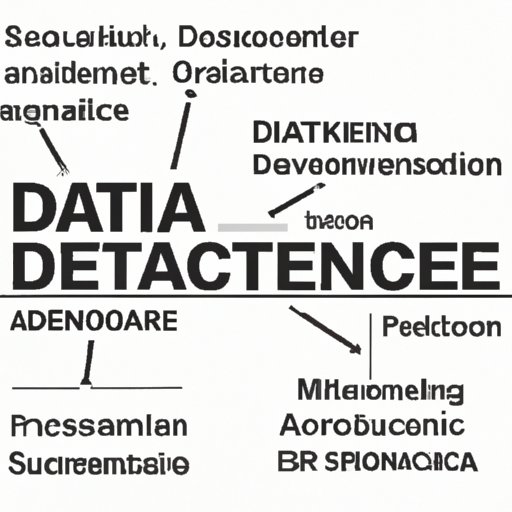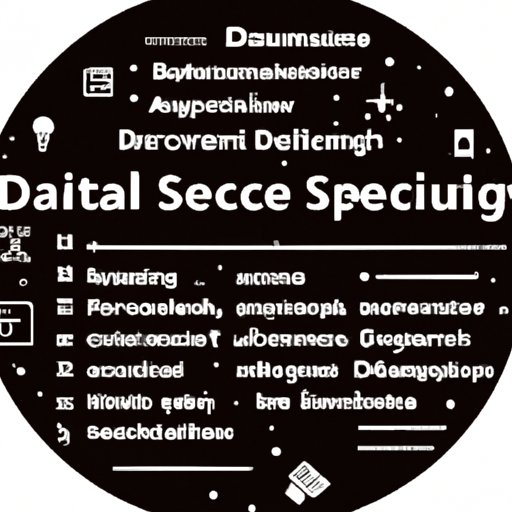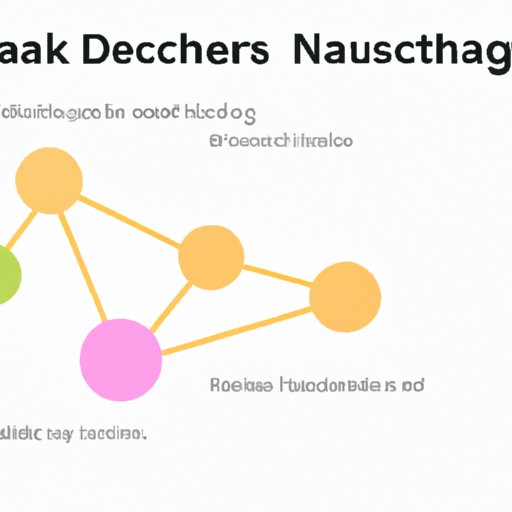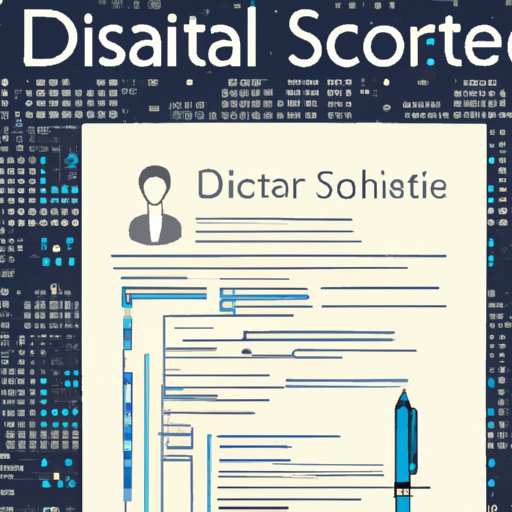Introduction
Data science is a rapidly growing field with many career opportunities. As organizations continue to generate more data, there is an increasing demand for professionals who can extract value from this data. This article provides a comprehensive guide for those looking to apply for data science jobs.

Definition of Data Science
Data science is the process of extracting insight from large sets of structured and unstructured data. It involves a range of activities such as collecting and cleaning data, building models to analyze data, and creating visualizations to communicate findings. The goal of data science is to gain actionable insights that can be used to improve business performance or solve complex problems.
Overview of the Job Market
The demand for data science professionals is expected to grow significantly over the next few years. According to a report by Burning Glass Technologies, the number of job postings for data science roles increased by 25% between 2018 and 2019. The same report also found that data science jobs pay an average salary of $111,000 per year, making it one of the highest-paying fields in the tech industry.
Outline the Steps to Apply for Data Science Jobs
Applying for a data science job can be a challenging process. However, following a few key steps can help simplify the process.
Research Companies and Open Positions
Before you start applying for data science jobs, it’s important to do some research on potential employers. Look at company websites to learn more about their mission, culture, and products. You should also check out job boards and online communities to find open data science positions. Make sure to read through job descriptions carefully so you know what skills and qualifications are required for each role.
Create an Effective Resume and Cover Letter
Having an up-to-date resume and cover letter is essential when applying for data science positions. Your resume should highlight your technical competencies, relevant experience, and education. Your cover letter should explain why you are qualified for the position and why you are interested in the company.
Submit Applications
Once you’ve identified potential positions and crafted your resume and cover letter, you can start submitting applications. Make sure to follow the instructions provided in each job posting. Some companies may require you to submit additional materials such as writing samples or code samples.
Prepare for Interviews
If your application is successful, you will likely be invited to participate in interviews. Interviews are an opportunity to demonstrate your knowledge and skills and to make a good impression on potential employers. It’s important to prepare for interviews in advance by researching the company, practicing common interview questions, and brushing up on your technical skills.

Highlight Essential Qualifications and Experience for Data Science Positions
Data science jobs typically require a combination of technical competencies, soft skills, and other qualifications. Here are some of the most important qualifications and experience for data science positions.
Technical Competencies
Data science jobs often require strong technical skills, including programming languages such as Python and R, machine learning algorithms, statistical analysis, data visualization tools, and databases. Candidates should also have experience working with big data technologies such as Hadoop and Spark.
Soft Skills
In addition to technical skills, data science professionals need to be able to communicate effectively and work well with others. Soft skills such as problem-solving, critical thinking, and creative thinking are also important. Other desirable soft skills include project management, leadership, and time management.
Other Qualifications
Some data science jobs may require additional qualifications such as a master’s degree in a related field or certifications in data science. Having experience with particular software or platforms may also be beneficial.
Provide Tips on Crafting an Effective Resume and Cover Letter
Your resume and cover letter are key components of your job application. Here are some tips for crafting an effective resume and cover letter.
Structure and Formatting
When creating your resume and cover letter, it’s important to use a clear structure and formatting. Use headings and subheadings to organize content and make it easier to read. Also, make sure to use consistent fonts, font sizes, and margins.
Content
The content of your resume and cover letter should be tailored to the specific position you are applying for. Make sure to include information about your technical skills, relevant experience, and education. When writing your cover letter, focus on how your skills and experience make you a good fit for the role.

Explain the Interview Process and How to Prepare
Interviews are an important part of the job application process. Here are some tips for preparing for interviews.
Types of Interviews
Data science interviews typically involve written tests, technical assessments, and face-to-face interviews. Written tests may involve coding challenges, math problems, or data analysis tasks. Technical assessments may require you to build a model or create a visualization. Face-to-face interviews may involve behavioral questions or technical questions.
Preparing for Different Interview Types
It’s important to prepare for different types of interviews. For written tests and technical assessments, practice is key. Make sure to brush up on your technical skills and complete practice problems. For face-to-face interviews, practice answering questions and be prepared to talk about your experience and qualifications.

Share Insights on Networking for Data Science Opportunities
Networking is an important part of finding a data science job. Here are some tips for networking for data science opportunities.
Utilize Social Media Platforms
Social media platforms such as LinkedIn and Twitter can be useful for connecting with potential employers and other data science professionals. Make sure to create a professional profile and share relevant content. You can also join groups and follow conversations related to data science.
Attend Conferences and Events
Conferences and events are great opportunities to meet people in the data science industry. Look for events in your area and attend as many as you can. These events can be a great way to network and learn more about the data science job market.
Conclusion
Applying for data science jobs can be a challenging process, but following the right steps can help simplify the process. Research potential employers, create an effective resume and cover letter, submit applications, and prepare for interviews. Highlight essential qualifications and experience, provide tips on crafting an effective resume and cover letter, explain the interview process, and share insights on networking for data science opportunities. With the right preparation and strategy, you can increase your chances of landing a data science job.
(Note: Is this article not meeting your expectations? Do you have knowledge or insights to share? Unlock new opportunities and expand your reach by joining our authors team. Click Registration to join us and share your expertise with our readers.)
